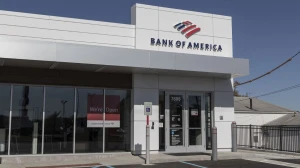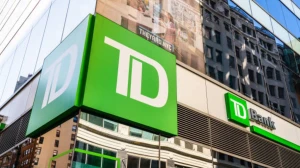
How Foreigners Can Open Savings Accounts in the U.S? Can a Non-Citizen Open a Bank Account in the US?
Foreigners can open savings accounts in the U.S. by providing proper ID and address proof, while Non-citizens can open bank accounts, but requirements vary.
by Sangamithra
Published Sep 11, 2023 | Updated Sep 11, 2023 | 📖 7 min read
How Foreigners Can Open Savings Accounts in the U.S?
Opening a savings account in the United States as a foreign national can be a more complex process compared to American citizens. The essential steps and requirements for foreigners interested in opening a U.S. savings account.
Understanding Their Status: Foreign individuals wishing to open U.S. bank accounts are categorized as resident and non-resident aliens, each with specific criteria. Non-resident aliens are those who aren't U.S. citizens, lawful permanent residents, or green card holders.
Gathering Identification: To initiate the process, they must provide valid photo identification. For U.S. citizens, this typically includes a driver's license or passport. Non-U.S. citizens can use a valid foreign passport, an alien identification number from a green card, or other acceptable government-issued IDs from their home country.
Proving Their U.S. Address: They will also need to provide proof of their current U.S. address. This can be a utility bill or a letter addressed to them. Some banks may have specific requirements regarding the type of address proof they accept.
Social Security Number (SSN) or ITIN: While having an SSN or Individual Taxpayer Identification Number (ITIN) is often necessary for earning interest, they can open an account without one, but any interest earned will be subject to U.S. taxes. Certain nonresident aliens may need to file IRS form W-7 to obtain an ITIN.
Minimum Deposits: Banks and credit unions may have varying minimum deposit requirements, which can range from as low as $5 to higher amounts. The specific amount depends on the financial institution they choose.
Being Prepared for Challenges: Depending on their nationality, immigration status, income source, and intended banking activities, they may encounter additional requirements or account restrictions. Some nations and citizens may be subject to special regulations due to Office of Foreign Assets Control requirements.
Considering Multinational Banks: To simplify the process, they may consider opening an account with a U.S.-based multinational bank that has branches in their home country before their move to the U.S. Building a relationship with the bank at a foreign branch can facilitate the application process when they arrive in the United States.
How to Open a Bank Account in the U.S as a Foreigner?
Opening a bank account in the United States as a foreigner involves specific steps and requirements to ensure a smooth process.
1. Choose a Bank or Credit Union:
Research and select a bank or credit union that suits your needs and has a branch or online services accessible to non-U.S. citizens.
2. Gather Required Documents:
Prepare the necessary identification and address proof documents:
- Unexpired government-issued photo identification from your home country (e.g., passport).
- Proof of your current U.S. address (e.g., utility bill or workplace documents).
- Social Security Number (SSN) or Individual Taxpayer Identification Number (ITIN) if available.
- Home country's tax or federal ID number (if required).
3. Verify Bank Requirements:
Contact the chosen bank or credit union to confirm their specific documentation and minimum deposit requirements for foreign account holders.
4. Visit the Bank:
Non-U.S. citizens often need to apply in person at a branch, as online applications for foreign accounts are limited due to security regulations.
5. Complete the Application:
Fill out the necessary account application forms and provide all required documents. Be prepared to provide additional information if requested.
6. Minimum Deposit:
Deposit the minimum required amount to open the account. Minimum deposits vary by institution.
7. Address Any Additional Challenges:
Be aware that your nationality, immigration status, income source, and the services you require may pose additional challenges. Some nations and their citizens may have special requirements.
8. Follow-Up and Maintain the Account:
Stay in contact with the bank and ensure you meet any ongoing requirements for maintaining your account.
Can a Non-Citizen Open a Bank Account in the U.S?
Yes, non-U.S. citizens can open bank accounts in the U.S., but the process involves meeting certain requirements. To do so, individuals must provide personal information, primary and secondary forms of identification, and either a Social Security number (SSN) or an Individual Taxpayer Identification Number (ITIN).
The extent of the requirements may vary between financial institutions, and applicants should consider factors such as the required opening deposit, minimum balance, fees, and available services when opening an account. While challenges such as language barriers and potential rejection of applications exist, the benefits include deposit insurance, direct deposit capabilities, access to various financial products, and ease of managing finances.
Some larger banks and credit unions accept alternative forms of ID from non-citizens, and remittance services or prepaid cards are available as alternatives for those who cannot open traditional bank accounts.
How to Open a U.S Bank Account Online for Non-residents?
Opening a U.S. bank account online as a non-resident can be challenging due to federal regulations and bank policies. While many banks offer online account opening services, they may restrict these services to U.S. citizens or legal permanent residents with proof of a U.S. street address. However, it's important to note that in-person verification is often needed for non-resident account applicants. Here are some key points to consider,
Online Bank Account for Non-Residents:
- Many U.S. banks provide the option to open accounts online, but the availability of this service for non-residents varies from bank to bank.
- Non-residents typically face stricter identification and documentation requirements compared to U.S. citizens.
In-Person Verification:
- In many cases, even if you start the account opening process online, non-resident applicants may be required to visit a physical branch in person to complete the verification process.
- Heightened security measures, especially after 2001, have led to the near-elimination of fully online account applications for foreign individuals due to concerns about potential money laundering and fraud.
While it's possible for non-residents to initiate the account opening process online, it's crucial to be aware that in-person verification is often a necessary step to complete the process. Due to the complexity of regulations and bank policies, it's advisable to communicate directly with the bank you're interested in to understand the most up-to-date requirements and procedures for non-resident account holders.
Can a Foreigner Open a Bank Account in the U.S.?
Yes, foreigners can open a bank account in the United States, but they may need to provide different forms of identification than U.S. citizens due to regulatory requirements like the USA PATRIOT Act. Typically, they'll need to furnish contact information, two forms of government-issued ID, a Social Security number or Individual Taxpayer Identification Number (ITIN), a utility bill with their current address, and sometimes a cash deposit.
However, not all banks extend this privilege to non-resident aliens, and age and U.S. address requirements apply. Some institutions accept alternative forms of ID, and if you lack a Social Security number, you can apply for an ITIN. Overall, foreign nationals can open U.S. bank accounts by meeting these requirements and gaining access to various financial benefits.
Are There Alternatives for Non-resident Immigrants for Opening Bank Account?
For non-resident immigrants who may face challenges opening a U.S. bank account, there are alternatives:
International Banks: Some international banks operate in both your home country and the United States, allowing you to open an account at home and still have access to it while in the U.S.
Correspondent Accounts: In certain cases, banks in your home country might have partnerships with U.S. banks. Leveraging this relationship may help you open a U.S. bank account.
These alternatives provide options for non-resident immigrants who may not qualify for a U.S. bank account but still need banking services during their stay in the United States.
How Foreigners Can Open Savings Accounts in the U.S - FAQs
1. Can non-U.S. citizens open a U.S. savings account?
Yes, non-U.S. citizens, including non-resident aliens, can open a U.S. savings account with the required documentation.
2. What documents do I need to open a U.S. bank account as a foreign national?
You typically need valid ID, proof of address, and either an SSN or ITIN, but requirements may vary by bank.
3. Can I open a U.S. bank account online as a non-resident?
Opening a U.S. bank account online as a non-resident is possible but may require in-person verification, and eligibility varies by bank.
4. What alternatives exist for non-resident immigrants unable to open a U.S. bank account?
Non-resident immigrants can explore options like international banks or correspondent accounts for banking needs in the U.S.
5. Is a Social Security Number (SSN) mandatory to open a U.S. bank account as a non-citizen?
While an SSN is often required for earning interest, some banks accept an Individual Taxpayer Identification Number (ITIN) as an alternative for non-citizens.




